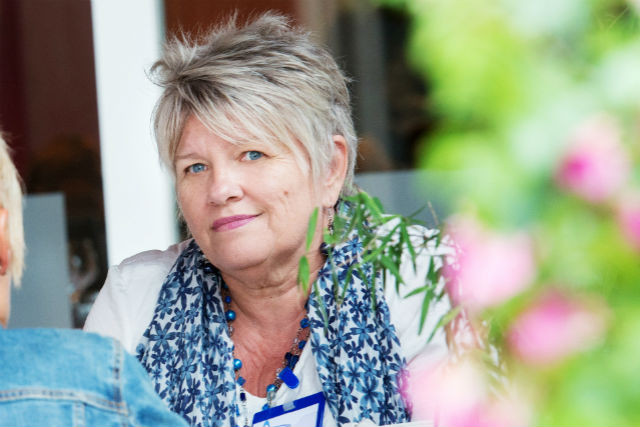No doubt the idea of retiring in one’s native country has crossed the minds of many an expat in Luxembourg. For entrepreneur Dot Bekker, 58, the dream of returning to Zimbabwe, 35 years after leaving it, will soon become a reality as she sets out on a one-way, 20,000-kilometre solo drive through Africa. Once she arrives, however, she will have no time for knitting.
“I’m setting up a girls’ scholarship fund,” Bekker told Delano in an interview. “Zimbabwe is now the poorest country in the world. I will use my entrepreneurial skills to see what I can do to help the country improve in terms of entrepreneurship and getting people into business.”
Bekker has carved a career out of her mentoring, business coaching and website building skills, a métier which she has been able to continue while living in five different countries, with her last four-and-a-half years spent in Luxembourg. She says that living in Zimbabwe should be no different. “The great thing is I can move anywhere and still be running my business,” she says.
The idea of going home to Africa, as she refers to her project, came after she and her husband separated after 22 years of marriage. “I sat back and I thought if I can do anything and go anywhere, what would I want to do?... I thought I would like to go back to Zimbabwe. I miss it tremendously. I miss home. There’s something about the smell and the sounds, the feeling. And, of course, the sunshine.”

Dot Bekker's Ford Transit van, which she will convert into a camper with her nephew's help.
Bekker purchased a second-hand Ford Transit van with low mileage from the UK because in Zimbabwe people drive on the left. Her nephew will later help her to convert the van into a camper. In the meantime, Bekker is downsizing. “I’m reducing my whole life into about 18 plastic crates. There are sacrifices that have to be made. I scanned all the papers that one collects and writes. Books are still the hardest thing to get rid of,” she says.
Bekker’s six-month journey, which will take her through 22 countries, through the “Bulge of Africa”, Mauritania, Senegal, down to Namibia, Botswana and Zimbabwe. She hopes to find a sponsor--fuel alone will cost her an estimated €5,000--and she plans to make a documentary of her journey for which she has applied for funding.
Bekker says she has received interesting responses to her project, mostly from people concerned for her safety. “I want to do it on my own because I want to prove a woman can do it,” she says, adding: “Obviously, there are places to avoid…But, I think it’s safer than a lot of people think.”
And while giving her space to get perspective on her own life, Bekker hopes her odyssey will empower other women her age to pursue their dreams.
“When you get older, suddenly you realise you become invisible in strange ways. There’s an expectation you should somehow fade into the background. I’m not really ready to do that…I want to show them you don’t have to stop working and starting knitting.”
To find out more, visit www.goinghometoafrica.com or email [email protected].
